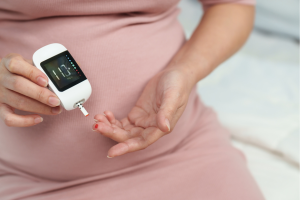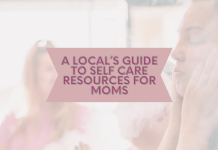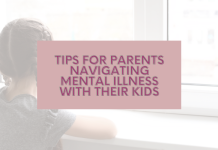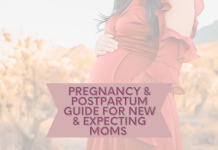 Every pregnancy is different, and no two mom’s experiences will ever be the same. There’s so many things that could affect one mom and not another, and there is no apparent rhyme or reason for any of it.
Every pregnancy is different, and no two mom’s experiences will ever be the same. There’s so many things that could affect one mom and not another, and there is no apparent rhyme or reason for any of it.
One of the unfamiliar terrains you could be asked to traverse in any or all of your pregnancies is Gestational Diabetes. Our team has written extensively on this issue, and given such great wisdom and insight on what you may expect to experience on this journey. I want to add to this conversation and talk a little about taking care of your mental health while you manage Gestational Diabetes.
Here are my 5 mental health tips as you tackle this sometimes intimidating part of pregnancy and motherhood.
xo,
Megan
- Give yourself permission to acknowledge how hard it is
Maintaining a diabetic diet, pricking your finger 4+ times a day to check your blood sugar, and possibly even injecting insulin into your stomach 4 times a day seems daunting. And girlfriend, make no mistake about it, IT IS. But, as Ashely reminds us, we would all do any and everything in our power to keep our children safe and healthy, both outside and inside the womb.
On the hard days, acknowledge that it is perfectly valid to struggle with something that is inherently designed to be difficult. GD is tough, and it’s ok if you have some days that feel extremely overwhelming or like you’re just over it. This too shall pass, Mama!
2. Check in with any triggers surrounding food
I’m honestly shocked that no medical professional has asked me about my past history with food, dieting, or disordered eating. Having to micromanage what you eat to almost obsessive degrees would be enough to trigger even those with the most healthy relationships with food. But, let’s be honest, most women in the United States have some kind of unhealthy relationship with food whether it be a history of obsessive/yo-yo dieting or an actual eating disorder.
I myself struggled with eating disorders in the past, and I have worked so hard to claw my way out of the depths of that darkness through many years of counseling, prayer, self-development, and rewiring my thinking. Having to deal with GD has dredged up so many old anxieties and unhealthy thinking that I thought I had left behind in my recovery.
Prenatal or Perinatal Depression is a real thing, and if your GD has got you feeling anxious or depressed, don’t ignore that! This is your permission to go seek additional mental health support. Either ask your OB for a referral to a counselor or therapist, or go find one on your own. It’s totally reasonable for GD to be triggering to some, and you’re 100% entitled to address this issue head on.
3. Get educated about nutrition
I’m also unbelievably floored that I’ve never been given a referral to see a Registered Dietician to make a plan for my nutrition and diet. Moms (or anyone for that matter) simply just don’t know what we don’t know. Unless you’ve extensively studied diabetic nutrition, how in the world are you supposed to know the literal science behind what and how foods affect your blood sugar?! The 30 minute class and 5 pages of literature that you are given after a GD diagnosis barely scratches the surface of all the information you need to know to manage your GD.
It’s perfectly reasonable that you don’t have this knowledge and therefore may feel clueless on how and what to eat to manage your GD. “Just winging it” is not the answer and can lead you down a road to taking additional diabetes medication when really all you may need to do is troubleshoot your diet.
Education is power, and you have the right to acquire the information you need to have a successful pregnancy. Be your own advocate. Specifically ask your doctor for a referral to a Registered Dietician, or seek one out on your own. There is no shame in needing guidance from a professional.
I came across an Instagram account @gestational.diabetes.nutrition late in my second pregnancy. The account owner, Lesleee Flannery, a Registered Dietitian specializing in GD, offers a 1:1 nutrition coaching as well as self-paced video-based courses on the same subject. I did not use her services in my second pregnancy but the Instagram account itself is a free resource that I found super useful for some great tips and information.
However, I did engage Leslee’s 1:1 coaching immediately after being diagnosed with GD again in my third pregnancy, and it was a GAME CHANGER! Hands down, her guidance and knowledge made a 10000% difference in my success in managing my GD this time and I was able to stay off of insulin and stay diet-controlled.
I cannot recommend her courses, her services, and just her presence in your life enough! The support she provided during this pregnancy made all the difference in my mental health–a total 180 from my previous experience trying to manage my GD alone. See more from Leslee in Bloom, our Pregnancy and Postpartum Guide for New and Expecting Moms!
4. Needing medication is NOT failure
If, despite all your best efforts, your GD is not being properly managed with diet and your doctor says it’s time to take additional medication (either Insulin or an oral drug), please know that you are NOT a failure! Who knows why our bodies do what they do sometimes, but medicine does not mean that this has defeated you.
I’ve had GD twice. I didn’t need meds the first time, but I do need it this time. It felt so demoralizing at first. But then I realized that the medicine is helping my body do what it’s supposed to do so that I can actually eat the foods I’m supposed to be able to eat and not drive myself crazy trying to micromanage every bite that goes into my mouth. It’s done absolute wonders for my mental health this time around. I honestly wish I hadn’t resisted for so long.
5. Celebrate all the victories, big and small
After the initial overwhelm of managing GD passes, hopefully you’ll find yourself in a nice routine for the rest of your pregnancy. Armed with a healthy mind and all the knowledge you need, you can now just handle this like the rockstar that you are! Give yourself permission to celebrate the days when your blood sugar numbers are all amazing, and also on the days when you were at a work conference and had to maneuver through some very challenging food availability.
Mama, YOU ARE DOING A HARD THING! Tell yourself every single day how amazing of a mom you already are by doing this really difficult thing on top of-you know–creating new life inside of you!
And most importantly, remember that 90% of GD almost immediately goes away as soon as you deliver the placenta. So be prepared to DoorDash yourself a giant milkshake and some french fries right to your hospital room!
*Please do not hesitate to reach out to me if you are struggling and need some extra support. I would love to encourage and pray for you as you navigate your own GD diagnosis.











Also really recommend reading Lily Nichol’s “Real food for Gestational Diabetes”. It was an absolute lifesaver during both of my pregnancies. The advice I always give other GD mommas is it’s a great time to educate yourself on nutrition and how your body tolerates certain foods! 🙂
That is a great resource, as well! And I agree, I feel like through this GD experience, I learned the importance of building nutritionally balanced meals *in general* and hope to carry some of these principles that I’ve learned into my normal, everyday life even past GD and pregnancy! 😀